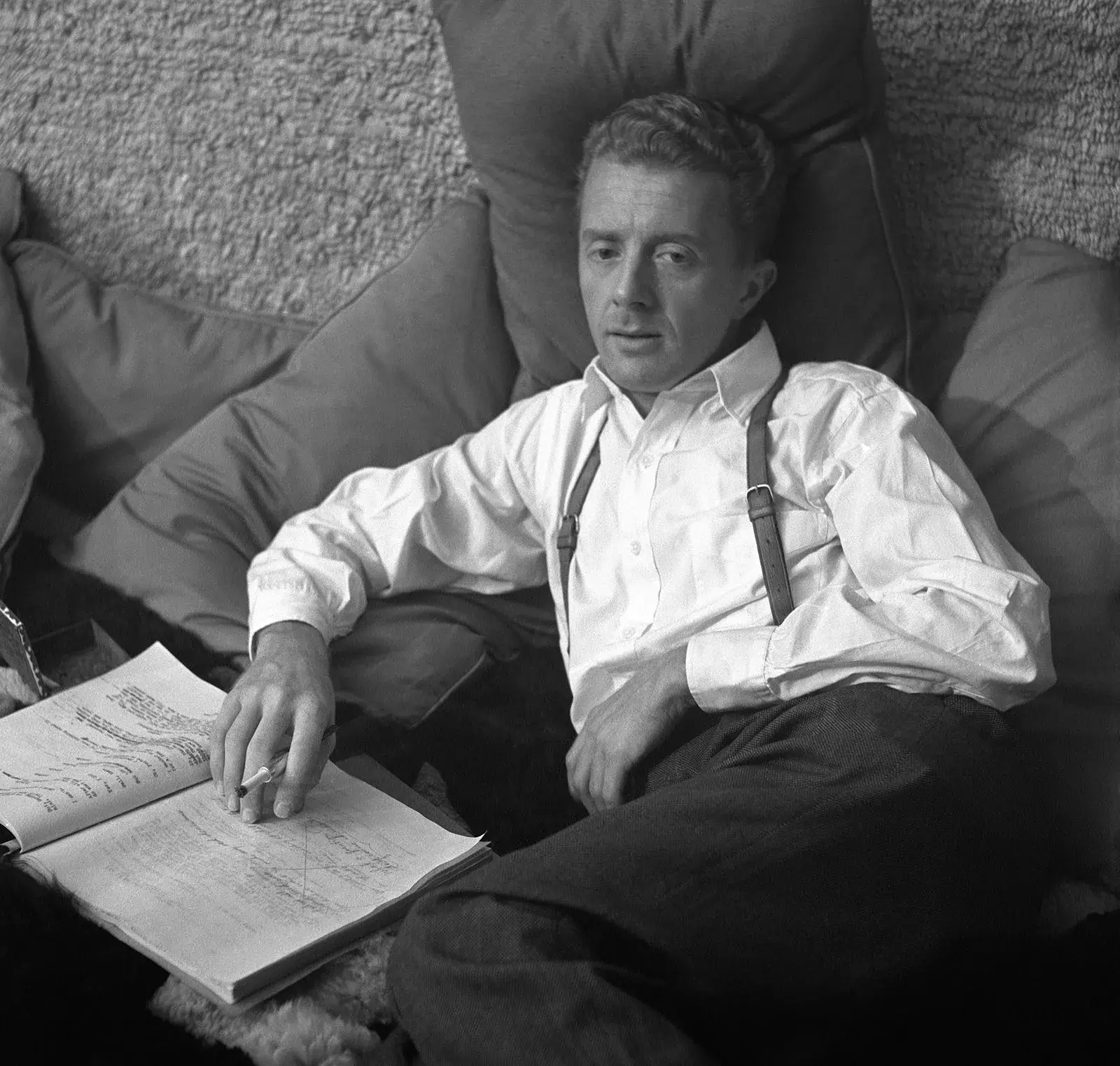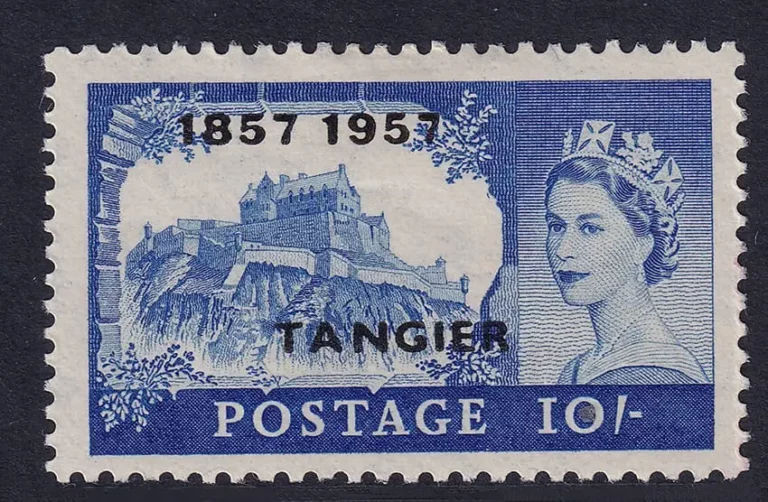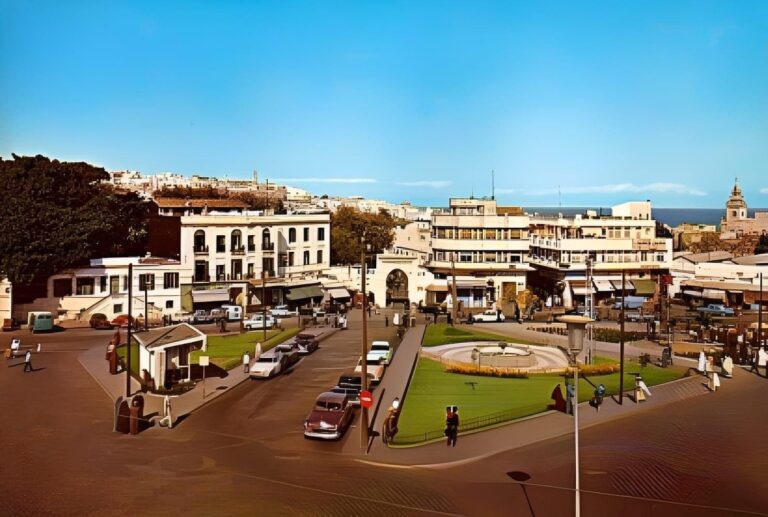Paul Bowles drew his last breath on November 18, 1999, in Tangier. He was one of the greatest figures of the city, one of the last witnesses of the international era that he embodied in his own way, distant and lucid.
He was born in 1910 in New York. After studying at the University of Virginia, he went to Paris in 1929. Gertrude Stein advised him to go to Tangier. He described his state of mind at the time in his autobiography (Memoirs of a Nomad):
“Like any romantic, I was more or less certain that one day I would find a magical place that, by revealing its secrets, would give me wisdom and ecstasy, even death.”
He arrived in Tangier in 1931 by bus, not by sea! Here is how he perceived the city when he arrived:
“If I say that Tangier hit me as a dream city, you have to take the expression in its literal sense. Its topography was rich with typically dreamlike scenes: covered streets like corridors with, on each side, doors opening onto rooms, hidden terraces overlooking the sea, streets that were only stairs, dark dead ends, small squares arranged in steep places, so that one would have said the sets of a ballet drawn in defiance of the laws of perspective, with alleys leaving in all directions. There were also tunnels, ramparts, ruins, dungeons and cliffs, all classic places of the dream world.”
We understand better why the Anglo-Saxons call Tangier “The Dream City”. Bowles returned to Tangier the following year but returned to the United States. He married Jane Auer in 1937. His final return to Tangier took place in 1947 following a dream:
“In a beautiful late afternoon, I walked slowly through a complex network of galleries. Lying in bed, I reviewed what I had seen in a dream, sorry to have left this wonderful place when waking up when suddenly, I understood with amazement that this magical city really existed. It was Tangier.”
After a successful debut as a composer, Bowles turned to writing leaving an original work, imprinted with a black vision of humanity associated with a cold and detached style. Today, some of his works appear in the program of the Competition of the Professorship of English (CAPES and Aggregation), in France. Bowles’ literary work is often inspired by the same theme: Westerners trying to escape the boredom of their lives by taking refuge in an East (or South) that does not satisfy them and that they even find frightening.
Although having “sponsored” the authors of the “Beat Generation”, Bowles was never one of them.
In addition to his literary and musical work, Paul Bowles leaves us a pioneering work on traditional Moroccan music that he went to record with his tape recorder in 1959, long before the fashion of “World Music”. These recordings, kept by the US Library of Congress, should be reissued.
In the cinema, in addition to his participation in the film “Senso” by Lucchino Visconti, he makes an appearance in the role of the narrator in the adaptation of “Un thé au Sahara” by Bernardo Bertolucci.
At the end of his life, Bowles became a “tourist” subject, he who defined himself as a traveler and not a tourist. In his autobiography, he said:
“Even today (ndw 1972), (…) the image of Tangier remains almost unchanged. People always come here dreaming of immersing themselves in the atmosphere of excess and prodigality that prevailed here in the forties; sometimes they even claim that the dream has come true.”
Roberta Bosca asked him in 1994 to describe the Tangier he loves:
“… watching Tangier from afar is a good way to beautify it and erase its flaws. Years ago, as soon as we arrived in Tangier, we felt literally hypnotized by the intense brightness. A light always moving, warm and soft when blowing desert winds, hard and melancholic when subjected to the influence of the ocean. The hypnosis disappeared, everyone was quickly taken by the intoxication of freedom. A freedom that turned into a prison for those who could not resist the call of the Kif, the hashish of the Atlas.
When I arrived in Tangier sixty years ago, people rode on donkeys; twice a week, camels brought supplies of wood and coal to the medina. On Thursday and Sunday, when the camels arrived, we celebrated. Joy and carelessness spontaneously arose in the Grand Souk Square. A place that by its colors, its musicians and its entertainers, resembled the Djema El Fna square of Marrakech.
(…) Now, for years I have not been to the medina and I have never lived there, too many people and dirt. I go back to the café Hafa. It is on its terrace that I continue to dream. Time has transformed everything except this place. Secret and silent, the Hafa coffee remained as before, magical. Generation after generation, this is where chess players, poets, writers, artists meet. And, installed on the old straw mats, they still surrender to the sweet illusions of the Kif.”
(in “La ville des mille et une lumières”. (in: Ailleurs, April 1994; n°1; pages 96 to 117).
Paul Bowles discovered Tangier, explored its facets and loved it intimately. His name will remain associated with the city.





